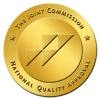It’s important to be informed about current events and the state of the world around you, but sometimes news consumption can be more harmful than you might realize. Are you becoming overwhelmed by a constant barrage of negative news coverage? Do you feel anxious, stressed, or even hopeless after catching up on the latest headlines? If so, it could be time to rethink your relationship with the news media.
Reasons Why Media Overload Can Hurt Your Mental Health
You have more options than ever before when it comes to staying informed about local, national, and global news. Pew Research Center reveals that digital devices are the most common news source, with 86% of people saying they get their news from digital sources such as social media or podcasts at least occasionally. In comparison, 62% of people consume television news, 52% rely on radio as a news source, and just 37% rely on print publications.
There are three reasons why our news consumption habits are problematic:
- The news is often focused on sensationalized, negative events. From natural disasters to political turmoil, the media tends to prioritize stories that evoke strong emotional reactions. This constant exposure to negativity can leave you feeling overwhelmed and emotionally drained, especially if you’re already dealing with an anxiety disorder or other diagnosed mental health condition.
- Our favorite news media lacks context and depth. Social media, TV, and radio are built for audiences with short attention spans, which means they are sacrificing in-depth analysis and context for quick updates and sound bites. This can lead to a superficial understanding of complex issues and contribute to misinformation.
- The 24-hour news cycle encourages recycled and amplified content. When news outlets have more airtime to fill, they will rehash the stories that get the most attention. Over time, the repetitive nature of this often negative content can make it difficult to genuinely care about the world around you.
How to Tell if You Should Rethink Your News Consumption
Striking a balance between staying informed and protecting your mental health can be challenging. However, if you recognize any of these signs in yourself, it’s time to consider that news consumption may be negatively impacting your well-being:
- Increased anxiety, anger, or stress. Do you feel anxious, angry, or stressed after consuming the news, even if you were having a good day before you checked out the headlines?
- Feeling the need to be constantly connected to a news source. Do you find it difficult to step away from news websites, social media feeds, or television news channels?
- Difficulty focusing. Are you constantly distracted by news updates or having trouble focusing at work or school?
- Difficulty sleeping. Do you get so caught up in the news that you are finding it difficult to get the sleep your body needs?
- Withdrawing from friends and family. Are you avoiding social interactions or canceling plans because you’d rather stay home and consume news?
- Strain in your relationships. Are you engaging in heated arguments or conflicts with friends or family over news-related topics?
- Stress-related physical symptoms. Are you experiencing headaches, stomachaches, or muscle tension with no known medical cause?
Tips to Help You Stay Informed Without Risking Your Mental Health
What can you do to protect your mental health in the face of relentless news consumption? Here are some ways to promote mindful consumption and self-care:
- Set boundaries for yourself. Make it a mental health goal to limit the amount of time you spend consuming news each day. Avoid constantly checking news updates throughout the day, as this can contribute to feelings of anxiety.
- Choose reputable news sources. Be selective about the news sources you follow. Avoid sensationalized or clickbait headlines. Damon Brown has a TED Talk on choosing news sources that you might find helpful.
- Stay selectively informed. Strive to be informed about current events, but selective about the topics you choose to engage with. Focus on issues that are relevant to your life and well-being. Avoid getting caught up in fear-inducing stories.
- Seek out positive content. Balance your news consumption with positive content that uplifts and inspires you. Stories of resilience, kindness, and hope can help to counteract negativity in the news cycle.
- Limit exposure to triggering content. If certain news topics or events trigger your anxiety or cause significant emotional distress, consider limiting your exposure to those topics. You have the power to choose what you expose yourself to, so prioritize your mental well-being.
- Take regular breaks from the news cycle. Give yourself permission to take breaks from the news when needed. If you find yourself feeling overwhelmed or stressed, step away from your devices and engage in activities that help you relax and recharge. This might include meditating, spending time outdoors, or enjoying a favorite creative hobby.
How We Can Help
If you find that news-related stress is impacting your daily functioning and overall quality of life, don’t hesitate to seek professional help. Therapy and counseling can provide you with the resources you need to navigate the challenges of modern media consumption in a way that best supports your mental health.
At Eagle View Behavioral Health, we’re here to guide you on a journey to mental wellness. Contact us today to learn more about the personalized treatment options available at our facility in Bettendorf, Iowa.







